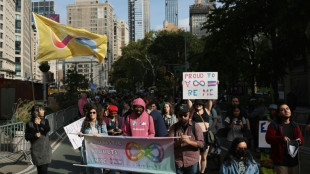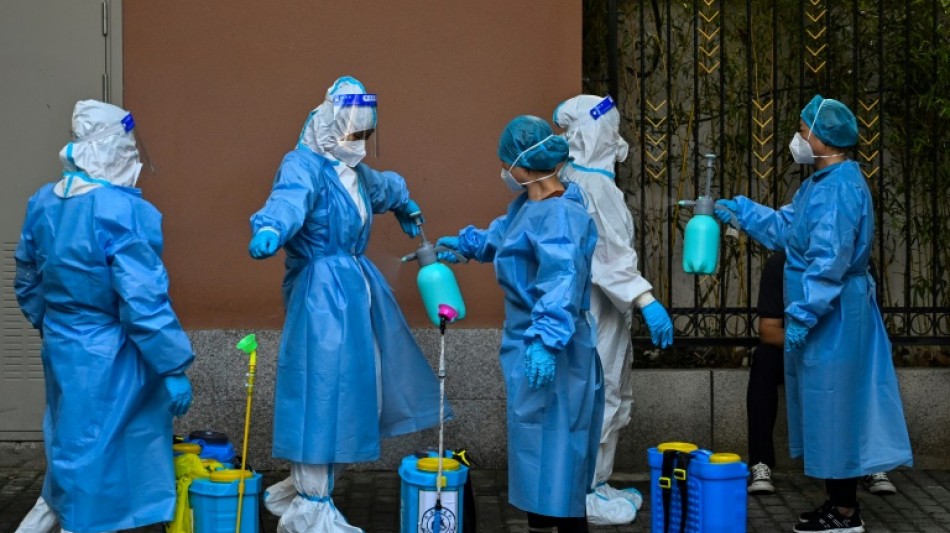
-
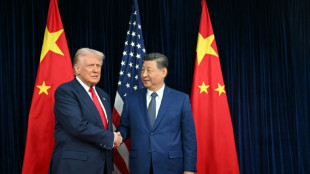 Asia markets fluctuate as investors mull Trump-Xi talks
Asia markets fluctuate as investors mull Trump-Xi talks
-
Trump, Xi ease fight on tariffs, rare earths
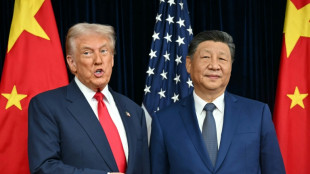
-
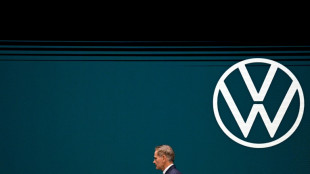 Volkswagen posts 1-billion-euro loss on tariffs, Porsche woes
Volkswagen posts 1-billion-euro loss on tariffs, Porsche woes
-
'Fight fire with fire': California mulls skewing electoral map

-
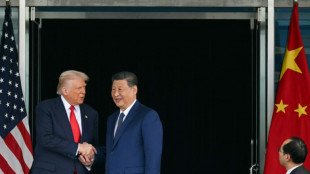 Fentanyl, beans and Ukraine: Trump hails 'success' in talks with Xi
Fentanyl, beans and Ukraine: Trump hails 'success' in talks with Xi
-
'Nowhere to sleep': Melissa upends life for Jamaicans
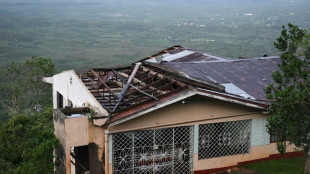
-
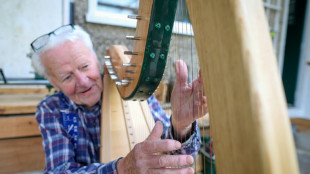 Irish octogenarian enjoys new lease on life making harps
Irish octogenarian enjoys new lease on life making harps
-
Tanzania blackout after election chaos, deaths feared
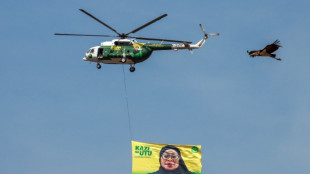
-
 G7 meets on countering China's critical mineral dominance
G7 meets on countering China's critical mineral dominance
-
Trump hails tariff, rare earth deal with Xi
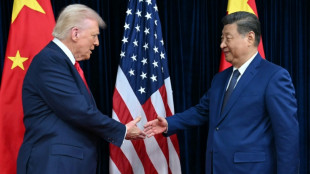
-
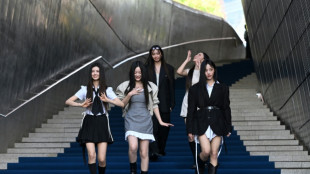 Court rules against K-pop group NewJeans in label dispute
Court rules against K-pop group NewJeans in label dispute
-
India's Iyer says 'getting better by the day' after lacerated spleen
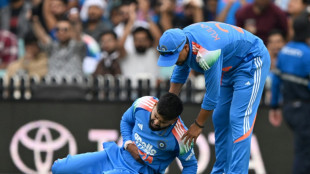
-
 Yesavage fairytale carries Blue Jays to World Series brink
Yesavage fairytale carries Blue Jays to World Series brink
-
Bank of Japan keeps interest rates unchanged

-
 Impoverished Filipinos forge a life among the tombstones
Impoverished Filipinos forge a life among the tombstones
-
Jokic posts fourth straight triple-double as Nuggets rout Pelicans

-
 UN calls for end to Sudan siege after mass hospital killings
UN calls for end to Sudan siege after mass hospital killings
-
Teenage Australian cricketer dies after being hit by ball

-
 As Russia advances on Kupiansk, Ukrainians fear second occupation
As Russia advances on Kupiansk, Ukrainians fear second occupation
-
Trade truce in balance as Trump meets 'tough negotiator' Xi

-
 China to send youngest astronaut, mice on space mission this week
China to send youngest astronaut, mice on space mission this week
-
Yesavage gem carries Blue Jays to brink of World Series as Dodgers downed

-
 With inflation under control, ECB to hold rates steady again
With inflation under control, ECB to hold rates steady again
-
Asia stocks muted with all eyes on Trump-Xi meeting

-
 Personal tipping points: Four people share their climate journeys
Personal tipping points: Four people share their climate journeys
-
Moto3 rider Dettwiler 'no longer critical' after crash: family

-
 US economy in the dark as government shutdown cuts off crucial data
US economy in the dark as government shutdown cuts off crucial data
-
Trump orders nuclear testing resumption ahead of Xi talks

-
 'Utter madness': NZ farmers agree dairy sale to French group
'Utter madness': NZ farmers agree dairy sale to French group
-
Samsung posts 32% profit rise on-year in third quarter

-
 30 years after cliffhanger vote, Quebec separatists voice hope for independence
30 years after cliffhanger vote, Quebec separatists voice hope for independence
-
Taxes, labor laws, pensions: what Milei wants to do next
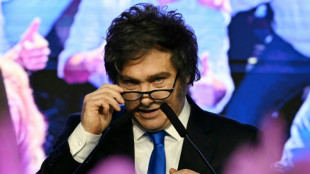
-
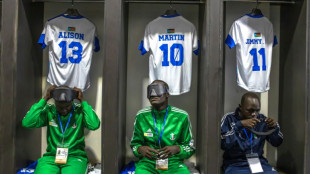 South Sudan's blind football team dreams of Paralympic glory
South Sudan's blind football team dreams of Paralympic glory
-
US says 4 killed in new strike on alleged Pacific drug boat
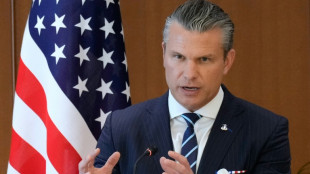
-
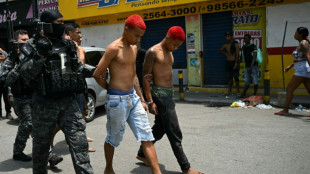 What we do and don't know about Rio's deadly police raid
What we do and don't know about Rio's deadly police raid
-
'They slit my son's throat' says mother of teen killed in Rio police raid
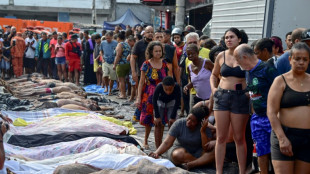
-
 Arteta hails 'special' Dowman after 15-year-old makes historic Arsenal start
Arteta hails 'special' Dowman after 15-year-old makes historic Arsenal start
-
Google parent Alphabet posts first $100 bn quarter as AI fuels growth
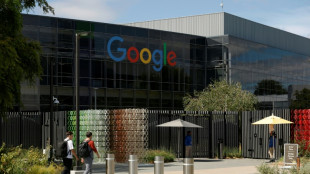
-
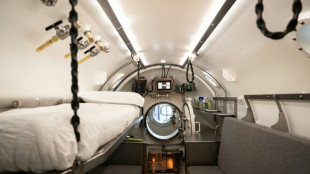 Underwater 'human habitat' aims to allow researchers to make weeklong dives
Underwater 'human habitat' aims to allow researchers to make weeklong dives
-
Maresca slams Delap for 'stupid' red card in Chelsea win at Wolves
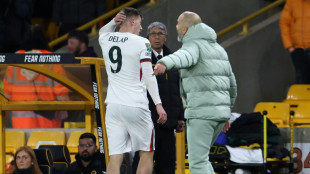
-
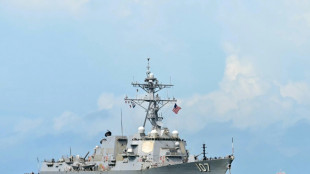 'Non-interventionist' Trump flexes muscles in Latin America
'Non-interventionist' Trump flexes muscles in Latin America
-
Slot defends League Cup selection despite not meeting 'Liverpool standards'
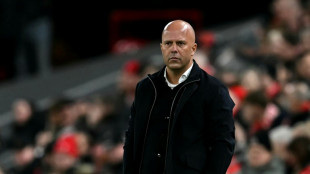
-
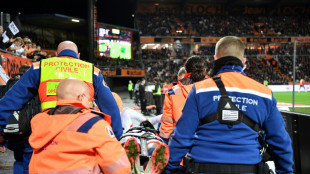 'Poor' PSG retain Ligue 1 lead despite stalemate and Doue injury
'Poor' PSG retain Ligue 1 lead despite stalemate and Doue injury
-
Liverpool crisis mounts after League Cup exit against Palace

-
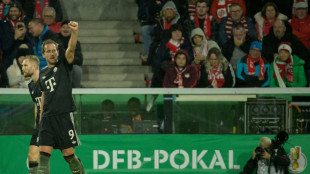 Kane scores twice as Bayern set European wins record
Kane scores twice as Bayern set European wins record
-
Radio Free Asia suspends operations after Trump cuts and shutdown
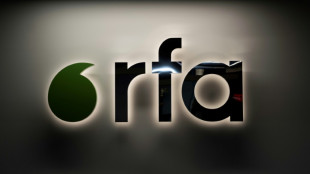
-
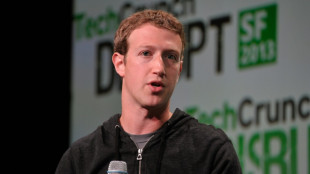 Meta shares sink as $16 bn US tax charge tanks profit
Meta shares sink as $16 bn US tax charge tanks profit
-
Dollar rises after Fed chair says December rate cut not a given
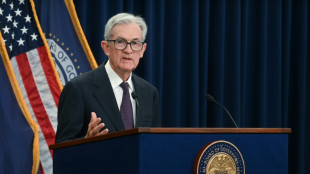
-
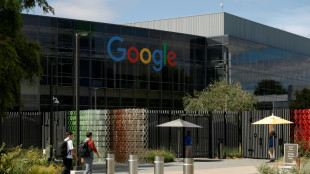 Google parent Alphabet posts first $100 bn quarter as AI drives growth
Google parent Alphabet posts first $100 bn quarter as AI drives growth
-
Rob Jetten: ex-athlete setting the pace in Dutch politics
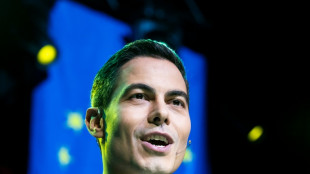

Pandemic treaty talks fight late hurdles
The head of the World Health Organization made a new plea for action Tuesday as talks on a landmark agreement on tackling future pandemics struggled to overcome late obstacles.
Negotiations, which have been going on four years, advanced slower than expected amid disagreements over the transfer of drugs and expertise to combat any new pandemic.
Five years after Covid-19 killed millions of people and devastated economies, experts have highlighted new health threats ranging from H5N1 bird flu to measles, mpox and Ebola, and WHO chief Tedros Adhanom Ghebreyesus told reporters at the talks "we need this now".
While taking measures to coordinate pandemic prevention, preparedness and response could be costly, Tedros said that "the cost of inaction is much bigger".
With new threats like H5N1 bird flu and ebola being highlighted by experts, Tedros said "virus is the worst enemy. (It) could be worse than a war."
While cuts to US foreign aid spending and threatened tariffs on pharmaceuticals casting a new shadow over the talks, negotiators have stumbled over Article 11, which deals with technology transfer for pandemic health products -- particularly for developing countries, sources told AFP.
During the Covid-19 pandemic, poorer countries accused rich nations of hoarding vaccines and tests.
Countries that have large pharmaceutical industries have strenuously opposed the idea of mandatory tech transfers, insisting they be voluntary.
- 'Huge reverse' -
Countries reached "an accord in principle" early Saturday and then took a three-day break to seek final approval from capitals.
It had appeared the tech transfer obstacle could be overcome by adding that any transfer needed to be "mutually agreed".
But sources told AFP that major pharma countries had demanded that this phrase be added to other parts of the text.
That would be "a huge reverse from Saturday's text", lamented James Packard Love, head of the NGO Knowledge Ecology International, on the Bluesky social network.
Amidst the intense talks in corridors and closed rooms in the WHO headquarters, Tedros joined the negotiations late Tuesday and told reporters he thought the current draft was "good", "balanced" and that a deal would bring "more equity".
The United States, which has thrown the global health system into crisis by slashing foreign aid spending, has not taken part in the negotiations. President Donald Trump ordered a withdrawal from the United Nations' health agency after taking office in January.
The US absence, and Trump's threat to slap steep tariffs on pharmaceutical products, still hangs over the talks, making manufacturers and governments more jittery.
But NGOs insist it is time to close the deal.
"Although the agreement went through several compromises, it includes many positive elements," Doctors Without Borders (MSF) said Tuesday.
Michelle Childs, Director of Policy Advocacy at the Drugs for Neglected Diseases initiative (DNDi), voiced hope countries would cross the finish line.
"It would be a first in the history of international agreements," she said, in its recognition that when countries fund research and development of vaccines and other medical products, you "need to attach conditions to that funding that ensure public benefit".
If an agreement is sealed, the text will be put for final approval at the WHO's annual assembly next month.
T.Egger--VB




